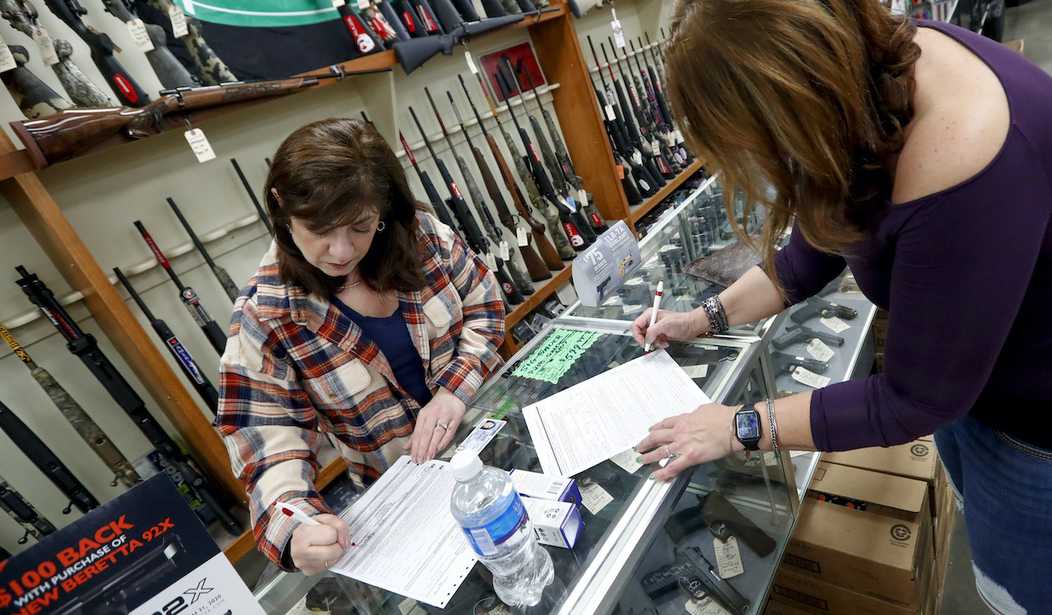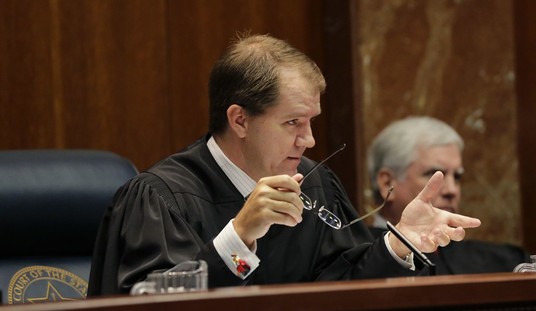The National Shooting Sports Foundation is encouraging Acting ATF Director Dan Driscoll to clean house; not in terms of employees (thought NSSF leadership has thoughts about that as well, I'm sure), but in terms of the reams of old paperwork it keeps on file.
In a June 23 letter to Driscoll viewed by Bearing Arms, NSSF senior vice president and general counsel Lawrence Keane urged Driscoll to "implement a policy of destroying out-of-business Federal Firearms Licensee (FFL) records that are more than 20 years old and to afford currently licensed dealers, manufacturers, and importers the discretion to purge ATF Forms 4473 and acquisition and disposition records that are also more than 20 years old."
As Keane points out, the ATF's National Tracing Center Division’s (NTC) Out-of-Business Records Center is home to an estimated one billion firearm transaction records from gun shops and FFLs no longer in business, and that number is growing. the Out-of-Business Records Center gets about nine million more records each month, on average; all of which are retained indefinitely.
NSSF says that not's not only a "growing logistical burden on the agency", but an expense that taxpayers shouldn't have to pay for. While the agency has been steadily digitizing these files (which is itself a cause for concern given its potential to be used as a backdoor gun registry), NSSF contends that "a substantial portion of records housed in the OBRC are now decades old and have negligible law enforcement value, if any, compared to the cost to maintain these old records."
Keane argues that there's no federal law that mandates keeping these records forevermore, and that a 20-year threshold is "more than sufficient for most legitimate law enforcement needs", while preventing the feds from ever assembling a registry of gun owners (even one that might be woefully out of date).
Since these records are of little use to police, the NSSF is also urging the ATF to allow FFLs who are currently operating to also purge their own paperwork that's more than 20 years old. That actually was the standard until August, 2022, when the Biden administration forced an administrative change requiring FFLs to maintain all Forms 4473 and acquisition and disposition records for the lifespan of the federal firearms license. Keane argues that this imposes a significant burden, especially on smaller, independent gun shops, which likely don't have a lot of space to keep 25 or 30 years worth of paperwork.
With the money saved from shuttering this ATF office, the NSSF says the agency could put more special agents on the street to "stop violent crime from occurring in the first place", while also "demonstrate[ing] a commitment to responsible stewardship of public resources" and "upholding the privacy rights of American citizens."
Making this change would require a formal rule from DOJ, so even if Driscoll agrees with the NSSF's recommendations it will take some time to put them into effect. These seem like sensible asks of the NSSF, though I'm sure the gun control lobby will go ballistic at the idea of purging any records held by the agency. Many Second Amendment activists would prefer to see all record-keeping requirements disappear, but that's not really a feasible possibility, even with Donald Trump in the White House.
Keeping these documents for twenty years while allowing older files to be destroyed would be a big step in the right direction, and a major improvement over the status quo imposed by Joe Biden during his whole-of-government attacks on gun owners and the firearms industry. In the name of good governance, gun owner privacy, and agency accountability, Acting ATF Director Driscoll should move swiftly to adopt the NSSF's request.









Join the conversation as a VIP Member